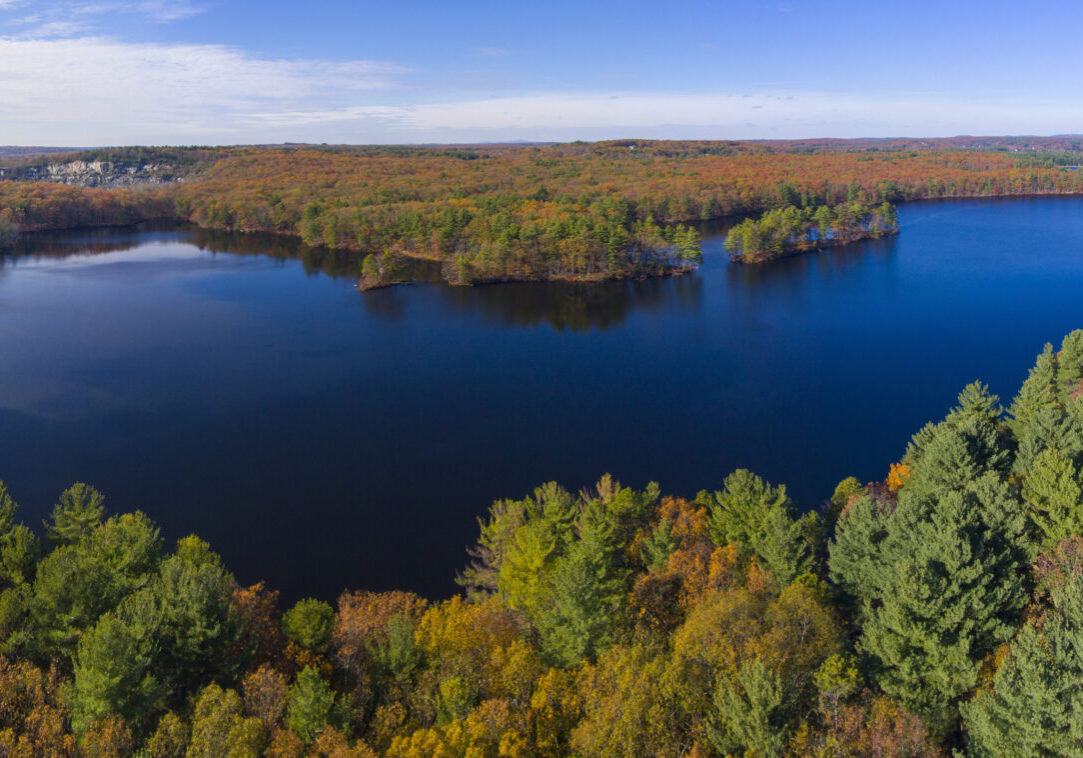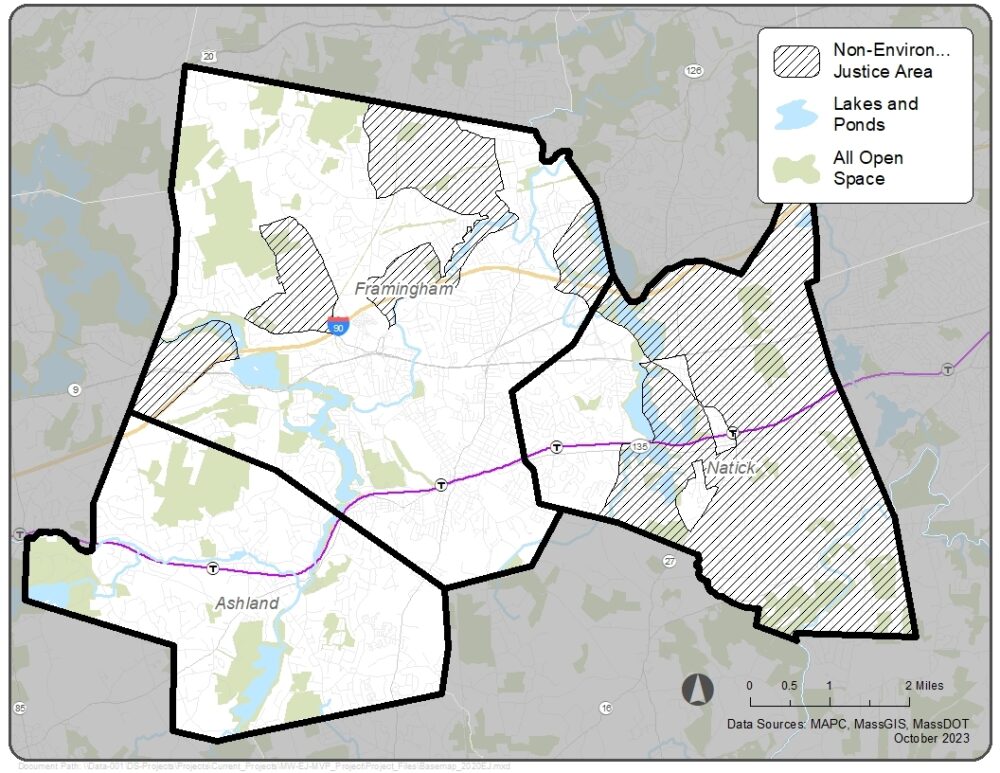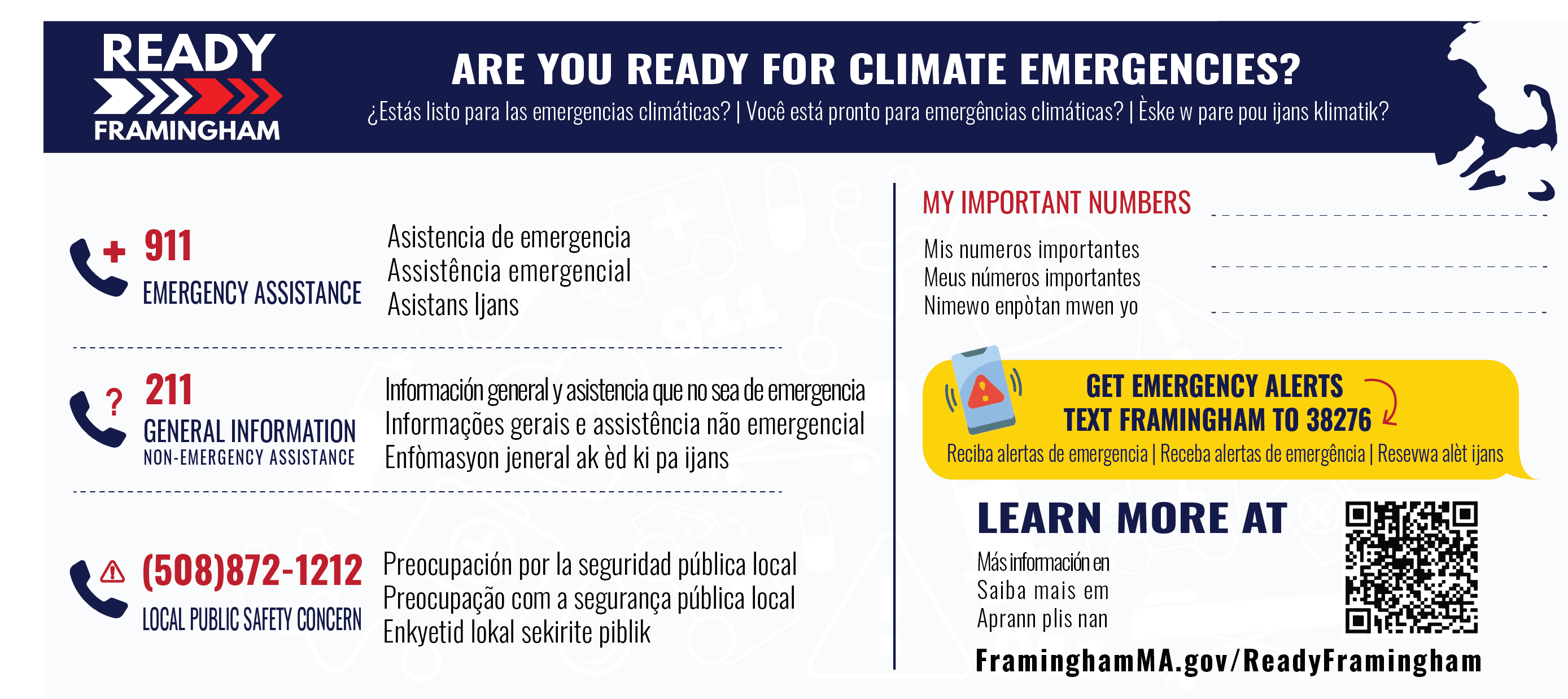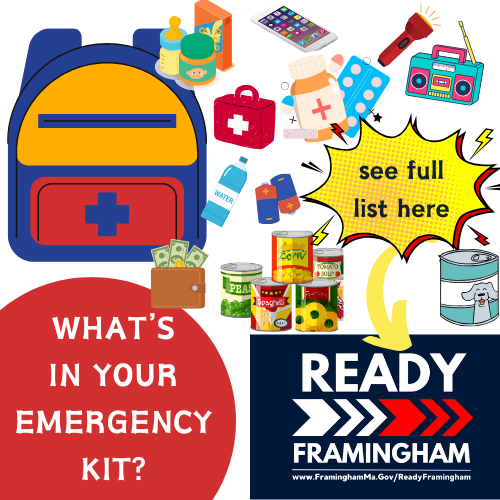
MetroWest Climate Equity Project
The Towns of Ashland and Natick and the City of Framingham have partnered on an innovative effort to prioritize community voice and equity in efforts to address climate change.
The MetroWest Climate Equity Project, launched in Fall 2021, has three core goals:
- Build lasting relationships with Metro West Environmental Justice (EJ) communities to facilitate sustained engagement on climate change resilience and action
- Establish a community-centered planning process to empower those that are most affected to shape local decisions and actions around climate change.
- Increase city and town staff’s knowledge of climate equity and participatory planning processes to improve their capacity to support and engage Environmental Justice communities.
The MetroWest Climate Equity Project is a commitment to center equity as we work towards a more climate resilience region.
Questions?
Sharon Ron
[email protected].

Map of EJ neighborhoods in Ashland, Natick, and Framingham. EJ neighborhoods are more likely to be home to Black, Indigenous, and People of Color (BIPOC); lower-income households; and people who are non-native English speakers.
Climate Conversations
The Towns of Natick and Ashland and the City of Framingham recognize climate change will have unequal impacts and want to support residents who will be hit hardest by climate change.
9 Climate Liaisons Hired
In 2022, the municipalities hired Community Climate Liaisons to lead conversations with residents in at-risk neighborhoods.
c
800+ Survey Participants
Climate Liaisons created a survey and collected responses. They asked about climate change impacts, what residents do to cope, and ideas for local climate action.
8 Climate Action Conversations
Climate Liaisons hosted community gatherings in different languages. The conversations focused on priority areas for local climate action and resilience.
Priority Areas for Climate Action
We Heard You!
The Towns of Natick and Ashland and the City of Framingham have started projects aimed at:
Getting Ready for Climate Emergencies
Summer Emergency Preparedness Communications
Climate change is causing more extreme weather. Metro West residents wanted to know, “how can we be ready for climate emergencies?” In response, a team of Climate Liaisons worked with municipal and MAPC staff to create and share climate preparedness materials and update municipal emergency preparedness websites. The interdisciplinary team included representatives from public health, fire, police, and planning departments!
Roberta Rodrigues, a Climate Liaison and graphic designer, translated the team’s vision into the final communication materials: a magnet and flyer that focused on being ready for the climate emergencies Metro West was most likely to experience in the summer – extreme heat and severe storms.

The materials are available in five languages (English, Spanish, Brazilian Portuguese, Haitian Creole, and Russian) and were sent to about 7,000 households in environmental justice neighborhoods. We made separate flyers and magnets for Ashland, Framingham, and Natick that had the same information but directed residents to their specific municipality’s website.
You can find all the versions of the flyer and magnet in the Additional Resources Section at the bottom of this page.
Winter Emergency Preparedness Communications
Following the summer project, Climate Liaisons came together to create emergency preparedness communication materials for the winter weather. Instead of mailing printed materials to households, this communications campaign focused on social media. Climate Liaisons designed posts that they posted on social media or sent via text to their networks.

The social media posts says "What's In Your Emergency Kit" and has icons of a backpack, cell phone, flashlight, first-aid kit, money, canned vegetables, a radio, medicine, water, pet food, and baby supplies. To see the full list of emergency supplies, visit www.FraminghamMA.gov/ReadyFramingham.

This photo is an example of a social media post that a Climate Liaison designed. The text is in Portuguese and translates to “Are You Ready for Snow Storms?
Planning for the Effects of Extreme Heat
Heat Watch Campaign
On July 13, 2023, Framingham State University’s McAuliffe Center led a group of volunteers in measuring temperature and humidity across Framingham, Natick, Ashland, and Holliston. MAPC used this data to create heat maps. This information will help the region understand which neighborhoods are experiencing higher temperatures and plan for cooling efforts in these areas.
Older Adults and Extreme Heat
In Winter 2024, AgeSpan funded the MetroWest Climate Equity Project to embark on a project focused on the impact of extreme heat on older adults. The project team will include a group of adults over the age of 55, who will offer insights on how they (and their communities) experience extreme heat and how to support older adults, leading with a focus on older residents of color. This information will help to shape strategies and inform the region’s actions to combat the problem effectively.
Additional Resources
MetroWest Climate Equity Project in the News
- Who Ya Gonna Call... When You Don't Speak English?
Sep 18, 2023 | Jillian Wilson | NACCHO - Climate Emergency Communications in Metro West
August 25, 2023 | Sharon Ron | MAPC - Climate change magnets given to most vulnerable
August 22, 2023 | MetroWest Daily News - Harnessing Community Science to Better Understand Urban Heat Island Challenges in the MetroWest
July 28, 2023 | Maria Salim | MAPC - Framingham, McAuliffe Center are each studying ways to combat climate change
May 16, 2023 | Tom Benoit | MetroWest Daily News - What's needed to fight climate change? Equity project liaisons aim to find out
May 20,2022 | Lilian Eden | MetroWest Daily News - Equity Matters: Climate Equity is Health Equity
April 28, 2022 | Jillian Wilson Martin | MetroWest Health Foundation
Support for this Project
Support for the first phase of this project came from the Municipal Vulnerability Preparedness (MVP) program. Additional funding for seed projects came from the National Association of County and City Health Officials (NACCHO) Climate and Health program, AgeSpan, the MetroWest Regional Collaborative, and the MAPC TAP program.
